DISCO REDUX!🕺The Philly Found & Forgotten Playlist: Classic Mid-'70s TSOP Disco Hits + Some That Missed
In the mid-'70s, when Disco was still fresh and new, these Philly jams reflect the best of the best! Some were massive, some rarely heard! Enjoy, and boogie up....or down. Hey, suit yourself!
Originally published November 17, 2022, it’s been refreshed and souped-up…it’s new and improved! Enjoy! Inspired by and dedicated to A.C.
Sometime around the writing of Inside Tracks #10, covering a handful of covers of The Spinners’ “I’ll Be Around,” and the sudden realization that evidence exists that the song was the planted-seed for the enormous mid- to late-’70s forest o’ hits that was the U.S. disco obsession, I decided to fashion a Playlist of ten of my fave disco tracks, all from those halcyon days of stacked platforms and massive medallions dangling on chest fur.
On making my list of seemingly random tracks from a variety of artists, labels, chart positions, and years, I suddenly came to the startling revelation that they all had their tasty roots planted firmly in the funky firmament of TSOP, MFSB, PIR…namely, the Keystone State: Pennsylvania!
To unwind the above alphabet soup, The Sound of Philadelphia (the overall banner), Mother Father Sister Brother (the Sigma Sound house band with orchestra), and Philadelphia International Records (the CBS Records affiliate where most Playlist songs found a home)!
Turns out, back in the day, when each of these songs was released (whether radio hits or not), I was all over them, and digging them on my turntable and/or at Houston-area clubs!
McFadden & Whitehead, and their “Ain’t No Stoppin’ Us Now” is the perfect jumping-off point, and not just for its optimistic, go-for-it message from 1979! First, it was a hard-fought recording-duet victory for the PIR songwriters. Second, it was a true cross-over monster, hitting #1 on the R&B singles chart, #10 on the disco charts, and peaked at #13 on Billboard’s Hot 100 pop chart, eventually selling over 2 million copies. And, it reached #5 in the UK.
In an interview conducted by Philadelphia video producer Bob Lott, John Whitehead and Gene McFadden (who wrote and produced the song with Jerry Cohen) revealed that the song was actually about their frustration with Philadelphia International Records owners Kenny Gamble and Leon Huff, who for many years preferred that they remain as house songwriters and not performers.
Gamble has since confirmed that upon first hearing “Ain’t No Stoppin’ Us Now,” he tried unsuccessfully to convince McFadden and Whitehead to give the song to [PIR artists] the O'Jays, as he felt it was better to write and produce for the [label’s] prominent recording artists than to try to compete with them as on-stage performers.
Couple that with the fact that Cohen, McFadden, and Whitehead were in a dispute over royalties with Philadelphia International. Whitehead has said, “If anything, the song was a declaration of our independence from Gamble.” As for McF & W back in the day, ‘tweren’t no stoppin’ ‘em then!
Harold Melvin & the Blue Notes’ “Don’t Leave Me This Way” (featuring Teddy Pendergrass on lead vocals) became the notable 1975 blueprint for the cover that became a smash for Thelma Houston the following year. Written by Gamble, Huff, and lyricist, Cary Gilbert, the song led off Side Two of the group’s Wake Up Everybody LP, produced by Gamble & Huff.
Not serviced to radio as a single in the US at the time, the Blue Notes’ recording reached number three on the Billboard Hot Disco Singles chart in the wake of Houston’s version in late ‘76 (which topped the US pop charts the following spring). Thelma can thank producer Hal Davis, who had recorded “Love Hangover,” a disco hit for Diana Ross at Motown, and used a similar approach in turning “Don't Leave Me This Way” into a dance track for Houston, also for Motown.
The Spinners, former Motown artists themselves, recorded “Love or Leave” for their 1975 Atlantic Records’ Pick of the Litter LP, completely conceived and executed at Philly’s Sigma Sound, and using MFSB players, with every song written by PIR staff writers, and produced, arranged and conducted by the late Thom Bell.
By 1975, I began to recognize the names of all the key Philly disco/R&B figures, and would often buy, sound unheard, everything featuring their names, and was never disappointed!
Pick of the Litter (which also includes the Top 5 hit, “Games People Play,” and like “Love or Leave,” was written by PIR staffers, Joseph B. Jefferson, Bruce Hawes, and Charles Simmons) was the fourth of five straight Philly-filled albums by The Spinners, all for Atlantic Records, and arguably the best of those five!
To say the Sigma Sound gang built the ‘70s hit-making machine that was The Spinners is a massive understatement.
Related: FR&B remembers Thom Bell with artist condolences, and a special, original Playlist featuring Thom Bell-produced/arranged/composed songs:
Dionne Warwick: The Sigma sessions for Track of the Cat could very well have happened on the heels of Pick of the Litter’s. Her fourth album for Warner Bros. Records (after several years and hits on Scepter with her run of Bacharach-David hits), this 1975 turn is as much a spectacular-sounding Sigma Sound/MFSB time capsule as it was a thunderous and unheard sales dud (#137 on the LP chart) for her millions of fans who followed her all the way to “San Jose” and beyond the previous decade.
“Once You Hit the Road” (written by Charles Simmons and Joseph Jefferson) was Dionne’s closely-watched follow-up to her #1 smash with The Spinners, 1974’s “Then Came You,” the only Thom Bell-produced track on her Then Came You album (recorded at NYC’s Hit Factory).
Needless to say, Warner Bros. was anxious to see if the Sigma/Philly/Bell hit-making combo could carry across an entire album; hence, Track of the Cat, an album which never seemed to leave my turntable for weeks at a time in 1975.
The Jacksons “Show You the Way to Go” was the group’s second single (released in early ‘77) off their self-titled 1976 Epic/CBS Records debut. Having dropped the “5” from their name (and replaced Jermaine with Randy, with the former staying at Motown), The Jacksons found it easier to write and record their own material away from the Berry Gordy-led Motown.
Michael sings lead here on this Gamble & Huff written-and-produced mid-tempo mover, recorded at Sigma. While it only reached #28 on the Hot 100, it made it to #1 in the UK, the group’s only single to do so.
Elton John “Are You Ready for Love” The Thom Bell Sessions aka The Thom Bell Sessions ‘77 have been under a bizarre veil of mystery and imagination since inception. A fan of the Philly sound (see 1975’s “Philadelphia Freedom,” with its Gene Page string arrangement and decided MFSB vibe), Elton was anxious to work with Thom Bell, who produced the Sessions at Sigma in Fall ‘77.
Designs had to be on a full LP, but the originally-recorded half-dozen songs quickly dwindled to a scant three….not released by MCA Records until June 1979 (Elton’s Rocket label in the UK)! To begin with, Bell used the Sigma house band, MFSB, and not Elton’s usual backing band.
Elton, by this time, was a wildly successful recording artist, and fairly set in his ways with usual lyricist Bernie Taupin and producer Gus Dudgeon. By all accounts, the equally talented and successful Bell knew what he wanted, and might have been just a tad too much of a perfectionist for Elton’s tastes, and the duo’s professional relationship deteriorated rapidly.
Bell, to add to the jumble, had recently relocated from Philadelphia to Seattle, so the initial sessions were recorded at Kaye-Smith Studios, then the premier Seattle studio. Additional overdubs were done back at Sigma Sound.
To hear UK’s FreakyTrigger tell it in 2003, “Why was the song neglected in the first place [upon initial 1979 release]? It’s probable Elton just didn’t especially like it. He didn’t write it, after all, and the Thom Bell sessions it came from were fraught and incomplete.
“What should have been a natural collaboration – John’s love for the Philly sound was deep, and ‘Philadelphia Freedom’ tipped the hat to Bell with its early-disco string hooks – went sour; hardly surprising nobody was keen to do much with the results.
“When ‘Are You Ready For Love’ did come out, [on the 1979 3-track 12” EP], the disco era was beginning to over-ripen, and perhaps there wasn’t much interest in a declining star’s stab at dance-pop.”
Bell produced all the tracks and co-wrote “Are You Ready for Love” with his nephew, LeRoy Bell, and Casey James, who together later comprised the popular singing duo, Bell & James (1978-81, A&M Records). The Spinners, themselves, sing backing vocals on “Are You Ready for Love”; John Edwards and Bobby Smith all but take over on Verse 2.
(Elton’s “Mama Can’t Buy You Love” from The Thom Bell Sessions, shows up as our Playlist’s #9, and was written by LeRoy Bell and Casey James).
During these sessions, Thom Bell (pictured above) also advised Elton on vocal skills, including encouraging him to sing in a lower register (heard to great effect on this song). That advice can’t have gone over well with La Elton, never one to leave his ego at the door! As always, though, Bell’s string arrangements are at once tasteful, impeccable, and stirring.
In sessions that likely left Elton overwhelmed (if not musically over-matched), he rarely performed the song in concert (in fact, these sessions are never mentioned in his autobiography).
But, at London’s Wembley Stadium in 2007 (video below), he wrestled the mother to the ground, and for this listener’s money, finally put the muddy puddle to bed, and left the crowd giddy and delirious. Well done, Reg!
As it happens, an edited version of the remix of “Are You Ready for Love” was re-released as a single in 2003, and went on to hit #1 on the UK and US Dance charts.
Back to UK’s FreakyTrigger: “The song didn’t necessarily make more sense in 2003, but it made a different sort of sense: What might once have sounded tacky had aged into classiness, and ‘Are You Ready?’ was able to feel reassuringly comfy while dodging the trap of over-familiarity.
“The teasing, twinkling plucked string intro, and the easy bounce of the percussion make the song feel especially welcoming, like you’re being ushered into a disco VIP room which turns out to be a cozy snug.
“Elton gives a well-judged performance too: He starts intimate and conversational, not breaking out into his louder registers until the chorus, and then his earnest gruffness on ‘Yes I am….Yes I am!’ makes it come off as honest yearning.
“It’s hard to overstate how much the absence of Bernie Taupin helps: No wild metaphors, no mawkishness, no knotted scansion. Elton John without those things wouldn’t be Elton John, but a break from them for these few joyfully straightforward minutes is exactly what he needed, even if it took 26 years to realize it.”
7. Philly Devotions “I Just Can’t Make It (Without You)”
I had the Columbia Records 7” promo single upon its release in August 1975. Other than the fact that a John Davis has his name all over the label’s credits, I know nothing, except that it’s a very Philly-sounding, rousing disco rave-up, easily befitting the O’Jays, Blue Notes, or Spinners! Like most disco singles of the day, it’s a Tom Moulton Mix.
Archie Bell & The Drells “The Soul City Walk”: Archie (a cousin to Thom Bell) and the Drells are fellow Houston homeboys. Former USC and Tampa Bay Buccaneers running back, Ricky Bell, who died in 1984, was Archie’s brother.
“The Soul City Walk,” released in 1975 on TSOP/CBS Records, was written by McFadden & Whitehead, and Victor Carstarphen, who also produced, with Gamble & Huff as executive producers. Recorded at Sigma Sound, Bobby Martin arranged. The single made it to #13 in the UK Singles Chart, but reached only #42 on the US R&B chart.
Elton John “Mama Can’t Buy You Love” covered above.
Dionne Warwick “Do You Believe in Love at First Sight,” 1977, Warner Bros. Records: Recorded two years after Dionne’s earlier Playlist entry, “Once You Hit the Road,” it nevertheless was Track of the Cat’s follow-up. Her album, Love at First Sight was also a favorite of mine, but had no ties, whatsoever, to Philly or anyone at Sigma Sound!
It was recorded clear across the country at Kendun Recorders in Burbank, CA, and produced by pop veterans Steve Barri and Michael Omartian. In fact, Omartian was an arranger on the 1974 self-titled debut RCA Records album by FR&B contributor, Stephen Michael Schwartz. We deep-dive into that album here:
“Do You Believe in Love at First Sight” was recorded by British singer, Polly Brown, in 1976, and was Dionne’s first single off the album. It was written by British songwriters, Frank McDonald, Ron Roker, Gerry Shury (Bee Gees, Rubettes), and Chris Rea, who had a Top 15 US hit in 1978 with “Fool (If You Think It’s Over),” and recorded a duet with Elton John in 1993, “If You Were Me.”
Ed Hogan of Allmusic.com called the upbeat single, “‘Do You Believe in Love at First Sight,’ one of the catchier tracks off the singer’s ‘70s records,” reason enough for its inclusion here! And, you can dance to it!🕺






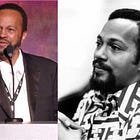
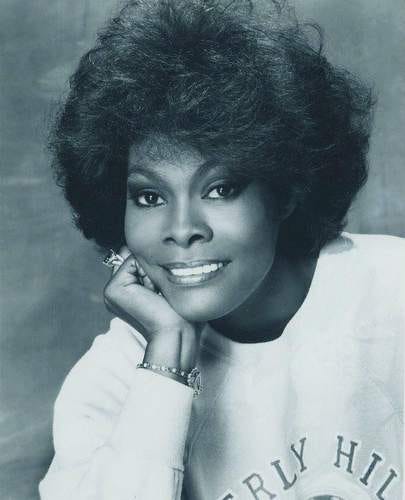
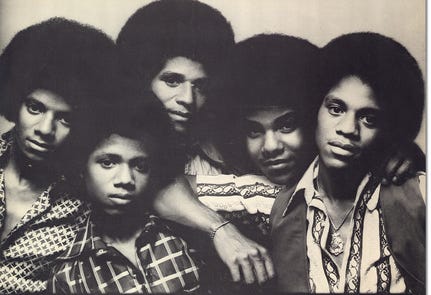

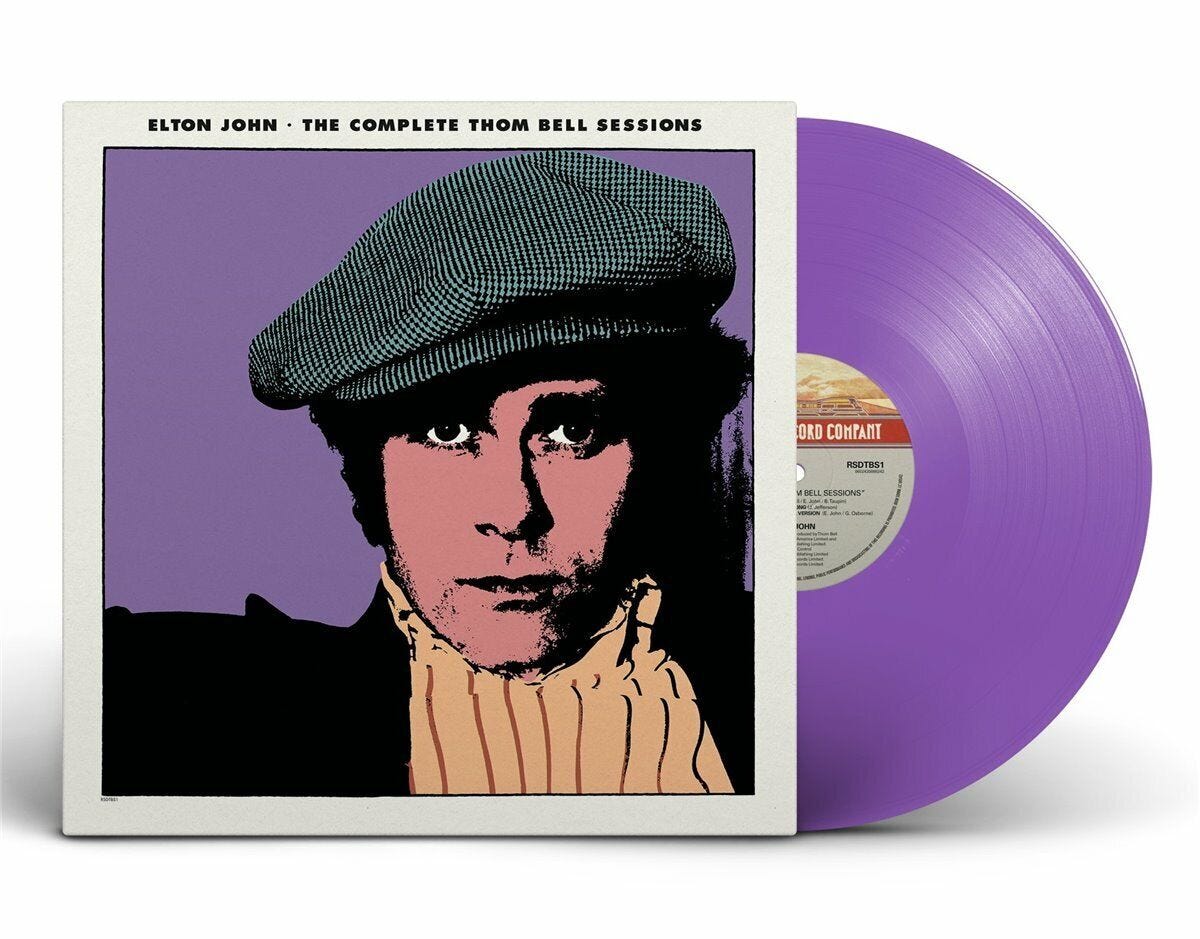



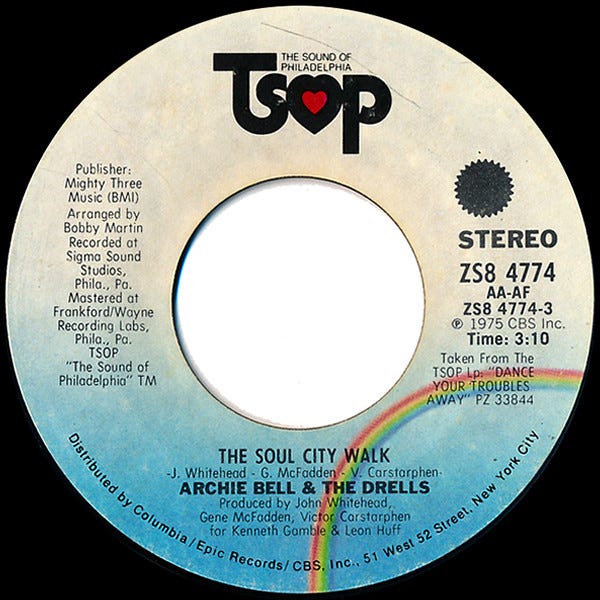
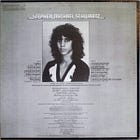
Fantastic newsletter Brad and a lovely playlist to get me through a dreary afternoon!
Thanks for the dedication!! This is ALL brilliant: the analysis, the song choices, the valuable information... those tunes!! I don't even know where to begin! I like the fact I already knew some of these songs (and I really like Teddy Pendergrass and his enveloping voice), and I'm eager to dive into those that I didn't know, or that I didn't know enough. Whoever is teaching at music schools, music journalism schools, teaching music industry courses or whatever: move aside, please... your time is up! Let the MASTER preach!! Thank you, Brad! 🥰